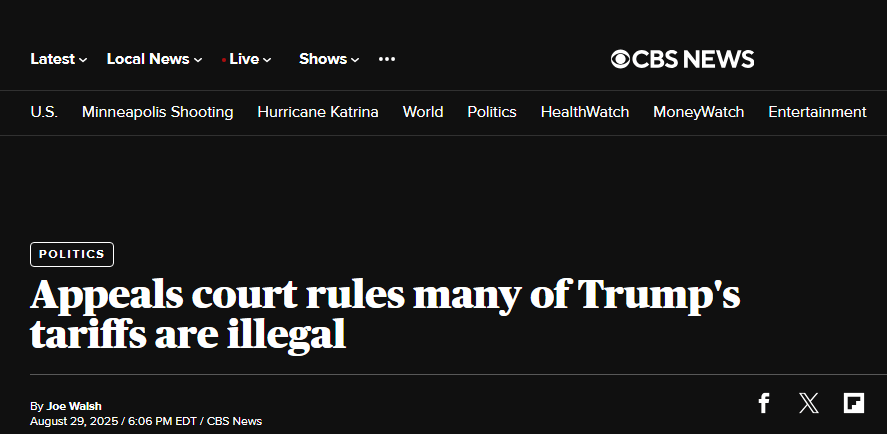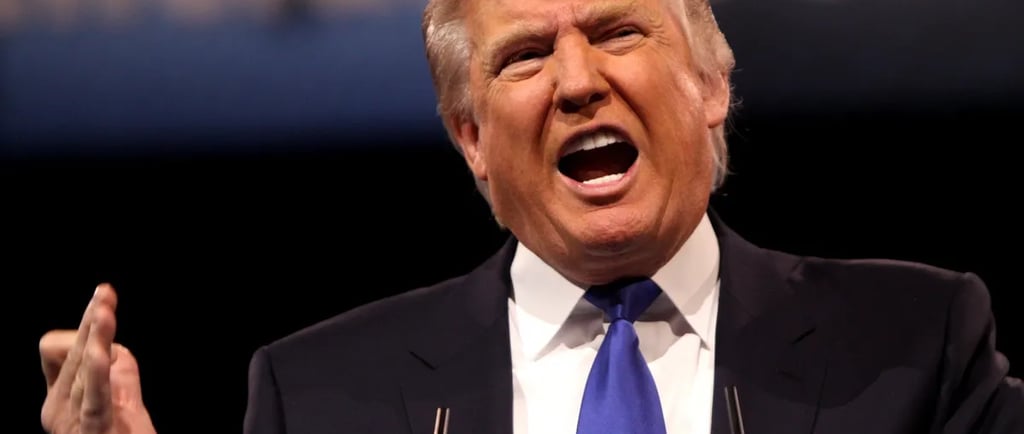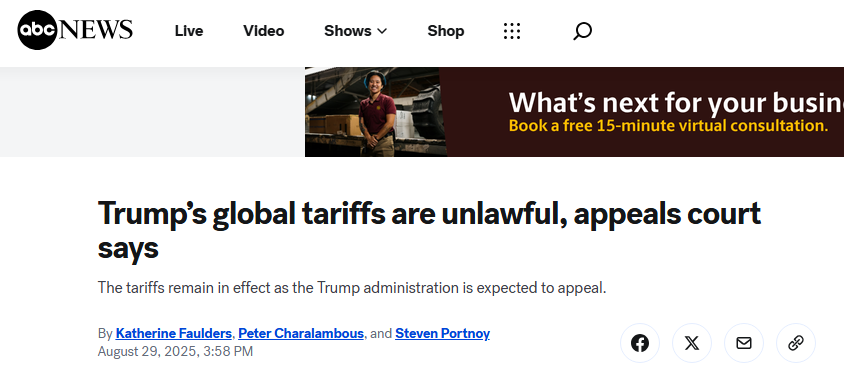Trump's Tariffs Declared ILLEGAL by Federal Appeals Court
The U.S. President is not authorized to make Congressional changes to tariffs. Only Congress can do it. Trump administration must repay any tariffs collected.
DailyBeastie.Com
8/29/20253 min read


A federal appeals court said Friday that many of the sweeping tariffs imposed by President Trump on dozens of countries earlier this year are not legally permissible.
The ruling will not immediately block the tariffs, but it marks a significant blow to Mr. Trump's signature trade strategy.
The U.S. Court of Appeals for the Federal Circuit upheld a lower court that found many of Mr. Trump's tariffs on foreign goods exceeded his power under federal economic emergency laws. However, the appellate judges vacated the lower court's injunction blocking the tariffs altogether, directing the court to reevaluate whether universal relief is appropriate.
The ruling applies to a series of April executive orders that imposed 10% baseline tariffs on virtually every country and higher "reciprocal" tariffs on dozens of trading partners. It also applies to a separate set of tariffs on goods from Canada, Mexico and China to pressure those three countries to crack down on fentanyl trafficking and unauthorized immigration.
The court's ruling will not take effect until October to give the Trump administration a chance to ask the Supreme Court to take up the case.




A federal appeals court has ruled that most of President Donald Trump's sweeping global tariffs are unlawful, potentially dealing a significant blow to the president's effort to reshape the country's trade policy unilaterally.
In a 7-4 decision, the U.S. Court of Appeals for the Federal Circuit rejected Trump's authority to carry out most of his tariffs, agreeing with the lower court that Trump's actions were "invalid as contrary to law." However, the court delayed the impact of its decision through mid-October to allow the Trump administration to appeal to the Supreme Court, as the tariffs remain in effect.
"Because we agree that [International Emergency Economic Powers Act's] grant of presidential authority to 'regulate' imports does not authorize the tariffs imposed by the Executive Orders, we affirm," the majority wrote.
The decision in effect tees up one of the most consequential legal questions for the Supreme Court about the scope of the president’s authority on trade policy.
After Oct. 14, the court will return the case to the lower court to decide how the recent ban on nationwide injunctions affects their decision.
The judges determined that only Congress, not the president alone, has the authority to impose tariffs, setting up a high-profile legal question for the Supreme Court regarding the scope of the president's power.
A group of small businesses and a coalition of states sued to block the tariffs earlier this year, arguing that President Trump had overstepped his authority under the rarely used International Emergency Economic Powers Act (IEEPA) when he issued a flurry of tariffs in April.
The following month, the New York-based Court of International Trade declared the tariffs were unlawful and encroached on Congress's authority to regulate trade. The Trump administration quickly appealed the decision, which was stayed as the legal process played out.
The U.S. Court of Appeals for the Federal Circuit heard oral arguments on the tariffs in July, during which time the panel of judges appeared skeptical that Trump could justify the tariffs based on a national emergency.
The judges noted that the text of the IEEPA never explicitly mentions "tariffs" and that no other president has attempted to utilize the law in the same manner as Trump has.
"One of the major concerns I have is that IEEPA doesn't mention tariffs anywhere," one judge remarked during the arguments in June. "Here, IEEPA doesn't even say tariffs -- doesn't even mention it."
Ahead of Friday's decision, U.S. Solicitor General John Sauer preemptively asked the court to stay their decision to prevent "serious harms" to ongoing negotiations and the country's trade policy.
Trump administration officials had previously warned that losing the ability to issue tariffs would "lead to dangerous diplomatic embarrassment," threaten ongoing negotiations between Russia and Ukraine, and "threaten broader U.S. strategic interests at home and abroad."

Political news, commentary for the enraged reader
contact@dailybeastie.com
© 2025 DailyBeastie.Com - All rights reserved.

